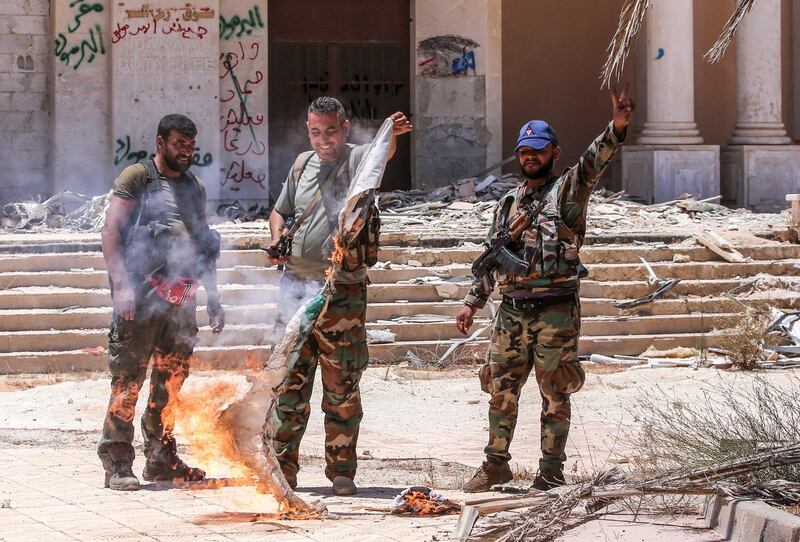After weeks of unsparing air strikes by the Syrian regime and its chief international ally, Russia, a pall of calm fell over Deraa on Saturday. The border region in south-west Syria, where the uprising against Bashar Al Assad began, had become a grim picture of death and desolation as the regime reprised its time-honoured tactic of raining down bombs – including some loaded with chemical agents – to terrorise entire populations into surrender.
More than 300,000 civilians, accounting for nearly half the people of Deraa, fled their homes; 60,000 massed on the border with Jordan in a desperate bid to seek sanctuary across the frontier.
Amman, having radiated compassion and acted with a solemn sense of responsibility since this conflict began, has decided to close its borders. The number of registered Syrian refugees inside Jordan is just above 650,000, which some estimate the total number of Syrians in the kingdom to be twice that.
The upshot is that there is now a genuine strain on Amman’s resources, especially at a time when it is struggling to revive its faltering economy, coupled with credible concerns about threats to its national security.
This explains why Jordan played a proactive role in brokering talks between Russia and the rebels in Deraa. As an observer at the Astana peace talks, Amman cultivated channels with Moscow. It pursued them energetically over the past week to help forge a deal. Under its terms the rebels gave up the Naseeb border crossing, which they have held since 2015, to the Syrian armed forces and the Russian military police.
Heavy weapons will be surrendered to Russians, and the rebels opposed to these conditions will be evacuated to areas in the north held by the opposition. The retreat by the United States, which despite being a signatory to a de-confliction agreement last year with Russia and Jordan that included Deraa refused to become involved this time, has meant that Amman has had to do the heavy lifting on its own. As Moscow’s involvement deepens, Washington’s ability to shape outcomes in Syria continues to diminish.
Deraa's displaced people began trickling homewards on Saturday after all other options were closed to them. Many, however, refused to trust the regime and stayed put on the border, hoping and praying for safe passage.
Their scepticism, born of long exposure to Mr Al Assad’s brutality, appears to have been judicious: the ceasefire is unravelling, its terms violated by the regime even before the ink on the document has properly dried. Warplanes returned to the skies above Deraa on Sunday, bombing the town of Om Elmiathin, as regime forces shelled the region. This ceasefire agreement seems destined to meet the same fate as the one forged last year. T
his is the reward of trusting Mr Al Assad. The least that those who looked away from Deraa can now do is enforce the agreement Jordan so laboriously achieved.





